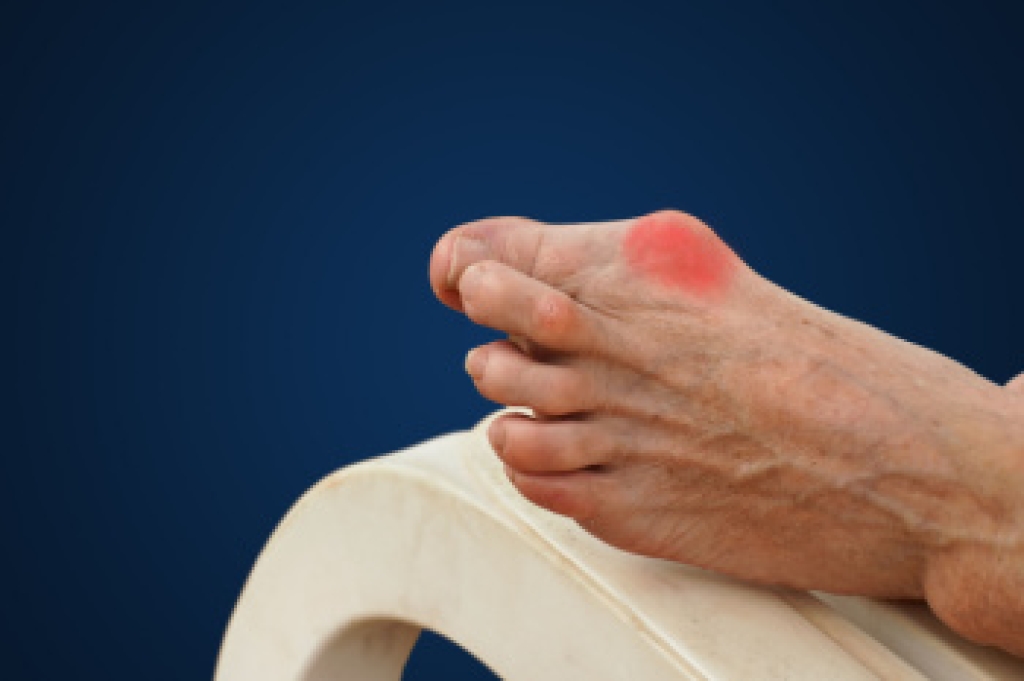
Bunions are bony bumps that form at the base of the big toe, where the joint becomes enlarged and misaligned. This condition often causes the big toe to lean toward the other toes, resulting in discomfort, swelling, and redness surrounding the joint. Symptoms include pain, difficulty wearing shoes, and stiffness, especially during walking or standing. Over time, bunions can lead to other foot issues, such as calluses, hammertoes, or arthritis. Bunions are caused by factors like genetics, wearing improper footwear, and foot stress from conditions like flat feet. Prevention involves wearing properly fitted shoes with enough room for toes to move. Treatment options range from non-invasive methods like orthotics to surgical correction for more severe cases. Early intervention helps prevent progression and improves quality of life. If you have an uncomfortable and painful bunion, it is suggested that you schedule an appointment with a podiatrist for a diagnosis and treatment individualized to you.
If you are suffering from bunion pain, contact Lawrence Fallat, DPM of Michigan. Our doctor can provide the care you need to keep you pain-free and on your feet.
What Is a Bunion?
Bunions are painful bony bumps that usually develop on the inside of the foot at the joint of the big toe. As the deformity increases over time, it may become painful to walk and wear shoes. Women are more likely to exacerbate existing bunions since they often wear tight, narrow shoes that shift their toes together. Bunion pain can be relieved by wearing wider shoes with enough room for the toes.
Causes
- Genetics – some people inherit feet that are more prone to bunion development
- Inflammatory Conditions - rheumatoid arthritis and polio may cause bunion development
Symptoms
- Redness and inflammation
- Pain and tenderness
- Callus or corns on the bump
- Restricted motion in the big toe
In order to diagnose your bunion, your podiatrist may ask about your medical history, symptoms, and general health. Your doctor might also order an x-ray to take a closer look at your feet. Nonsurgical treatment options include orthotics, padding, icing, changes in footwear, and medication. If nonsurgical treatments don’t alleviate your bunion pain, surgery may be necessary.
If you have any questions, please feel free to contact our offices located in Canton and Taylor, MI . We offer the newest diagnostic and treatment technologies for all your foot care needs.
